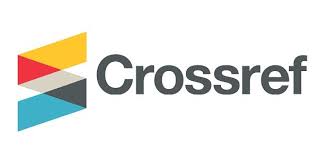INHERITANCE CONFLICT IN ISLAMIC LAW
DOI:
https://doi.org/10.33061/wh.v27i2.5810Keywords:
Conflict, inheritance, IslamAbstract
Conflicts between heirs also often occur because of the natural attitude of humans who do not want to give in and want to win themselves, in order to get the largest share of the inheritance among other families. Problem Formulation How is inheritance conflict in Islamic law The purpose of this research is to find out inheritance conflict in Islamic law.
The method used in this study is a sociological juridical approach, namely an approach to the problem through legal research by looking at the legal reality in practice, then connecting it with the facts that exist from the problem to be examined.
The problem of the distribution of inheritance has become a phenomenon that often occurs in society from the past until now. Because the distribution of inheritance is very sensitive. Often a conflict in the midst of the family. However, people who are Muslim apply to the Islamic Inheritance Law, the point is that inheritance issues can trigger the rift in family relationships. This happens if the distribution of the inheritance is not in accordance with the rules and signs that have been set by Allah in the Qur'an
References
Amin Husein Nasution, Hukum Kewarisan: Suatu Analisis Komperatif Pemikiran Mujtahid Dan Kompilasi Hukum Isalam (Jakarta: PT Raja Grafindo Persada, 2012
Ilham Thohari, Konflik Kewenangan Antara Pengadilan Negeri Dan Pengadilan Agama Dalam Menangai Perkara Sengketa Waris Orang Islam, Universum Vol. 9 No. 2 Juli 2015 | 173-188.
Muhammad Shofwanul Mu’minin, Konflik Keluarga Akibat Pembagian “Harta Waris†dengan Hibah Perspektif Kompilasi Hukum Islam, Konflik Keluarga Akibat Pembagian “Harta Waris†dengan Hibah Perspektif Kompilasi Hukum Islam,
Moh. Zeinudin, fikri. STUDI KOMPARATIF TENTANG ASPEK ONTOLOGI PEMBAGIAN WARIS MENURUT HUKUM ISLAM DAN HUKUM ADAT JAWA, Jurnal Unifikasi, ISSN 2354-5976 Vol. 3 No. 2 Juli 2016
Downloads
Published
How to Cite
Issue
Section
License
Copyright (c) 2021 Doris Rahmat, Santoso Budi NU

This work is licensed under a Creative Commons Attribution-ShareAlike 4.0 International License.
Authors who publish with this journal agree to the following terms:
- Copyright on any article is retained by the author(s).
- The author grants the journal, the right of first publication with the work simultaneously licensed under a Creative Commons Attribution License that allows others to share the work with an acknowledgment of the work’s authorship and initial publication in this journal.
- Authors are able to enter into separate, additional contractual arrangements for the non-exclusive distribution of the journal’s published version of the work (e.g., post it to an institutional repository or publish it in a book), with an acknowledgment of its initial publication in this journal.
- Authors are permitted and encouraged to post their work online (e.g., in institutional repositories or on their website) prior to and during the submission process, as it can lead to productive exchanges, as well as earlier and greater citation of published work.
- The article and any associated published material is distributed under the Creative Commons Attribution-ShareAlike 4.0 International License
















.png)


